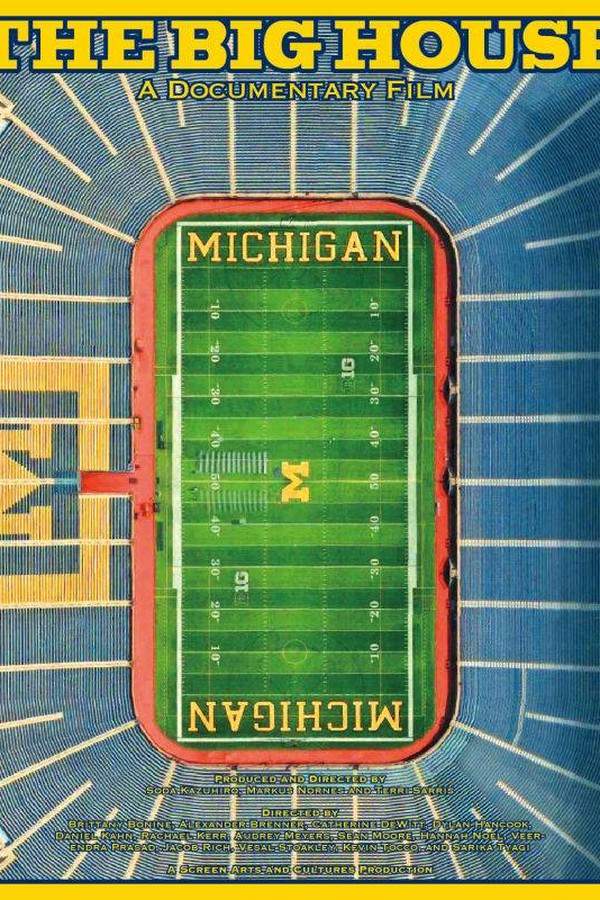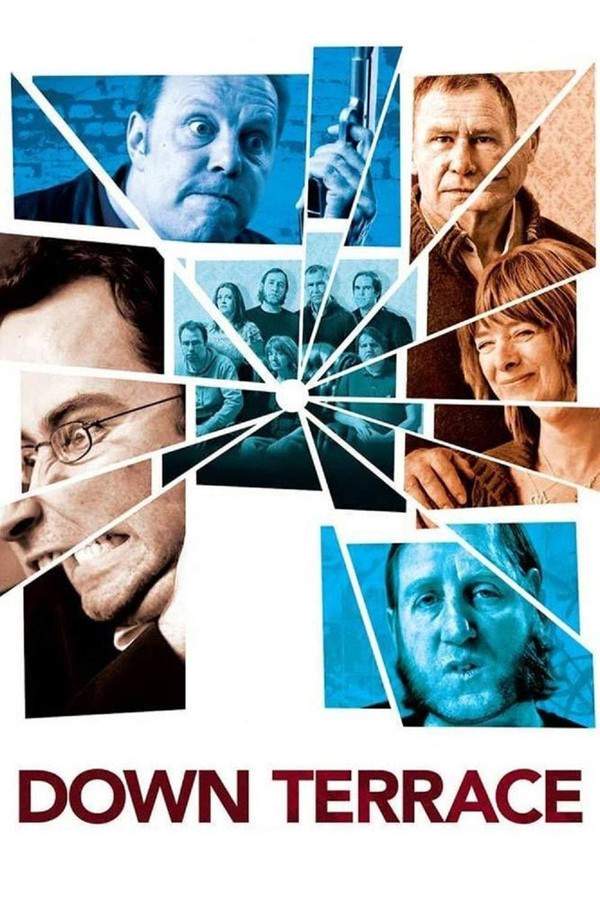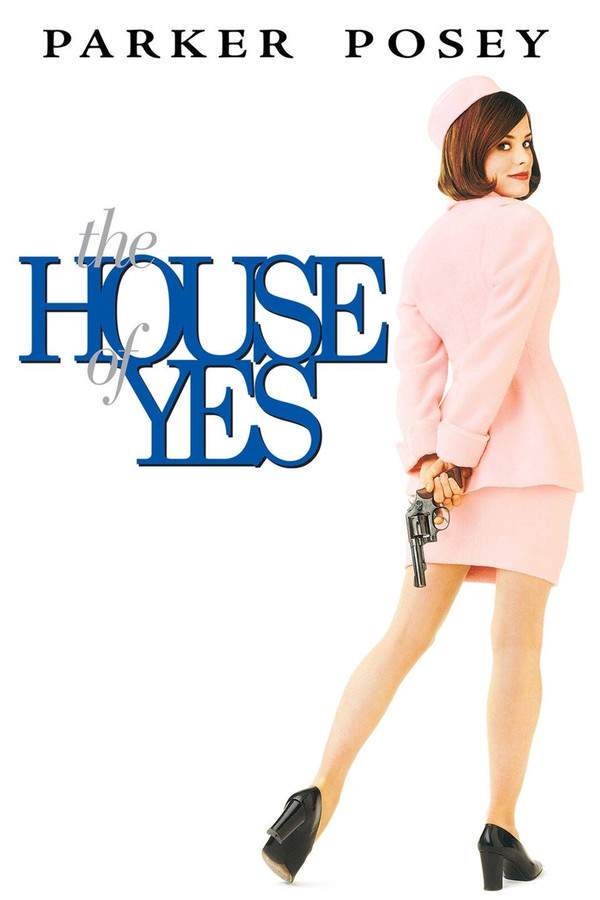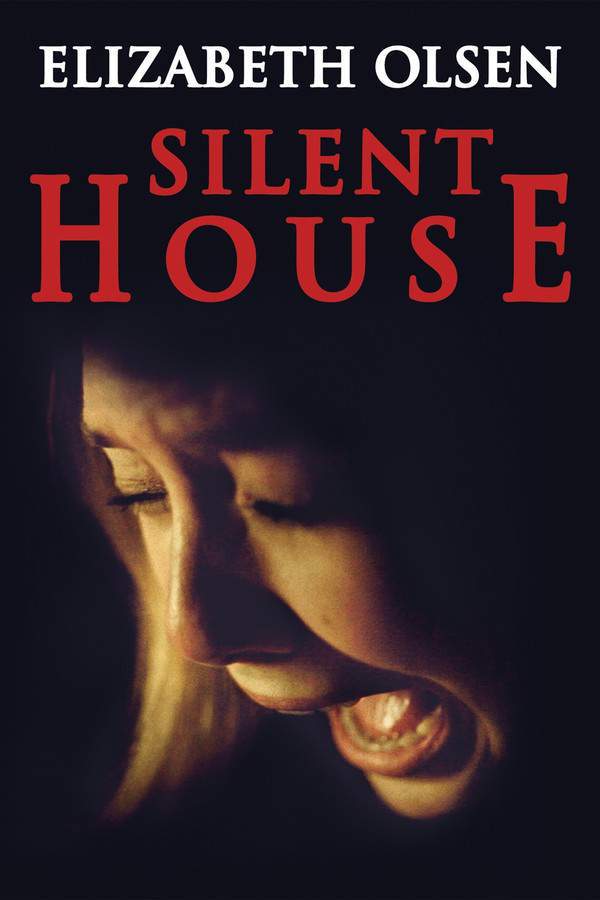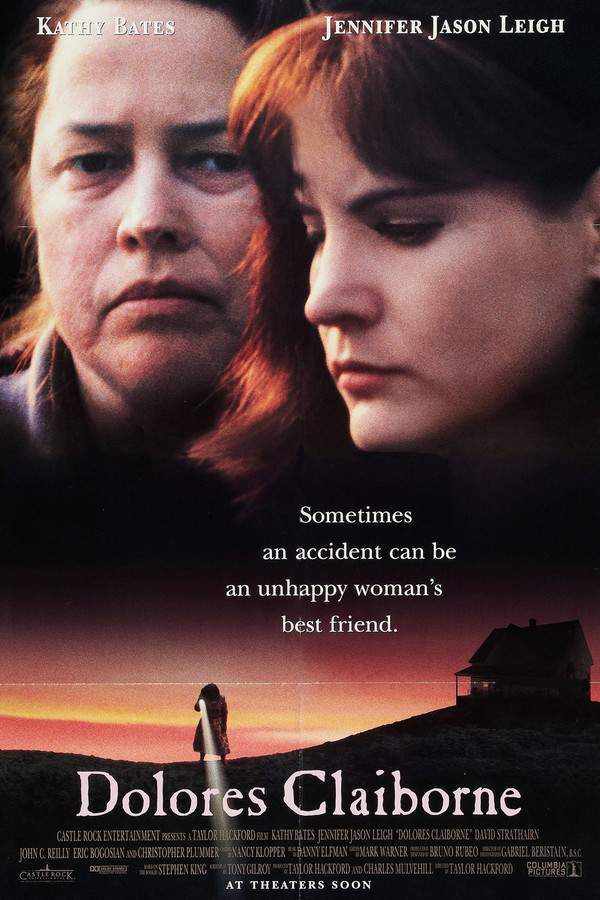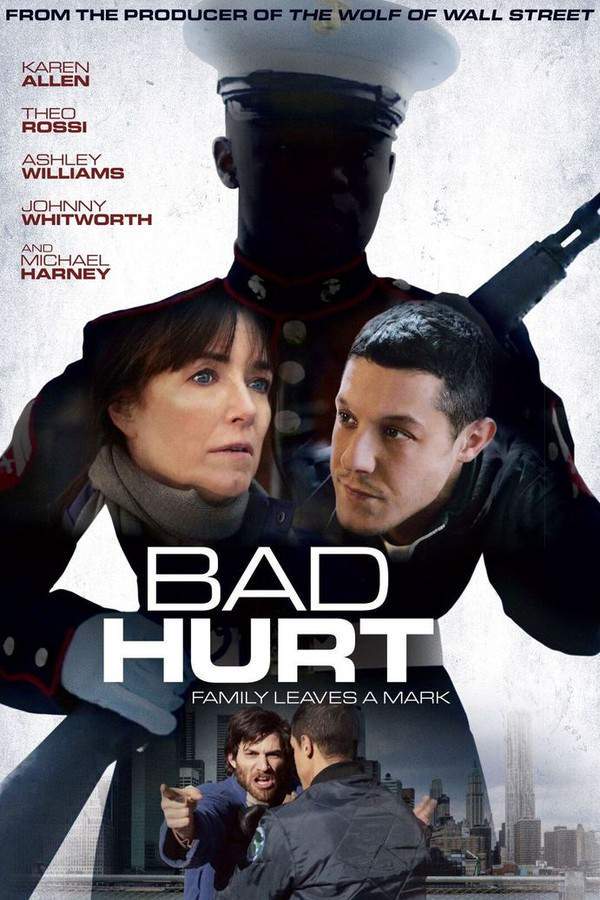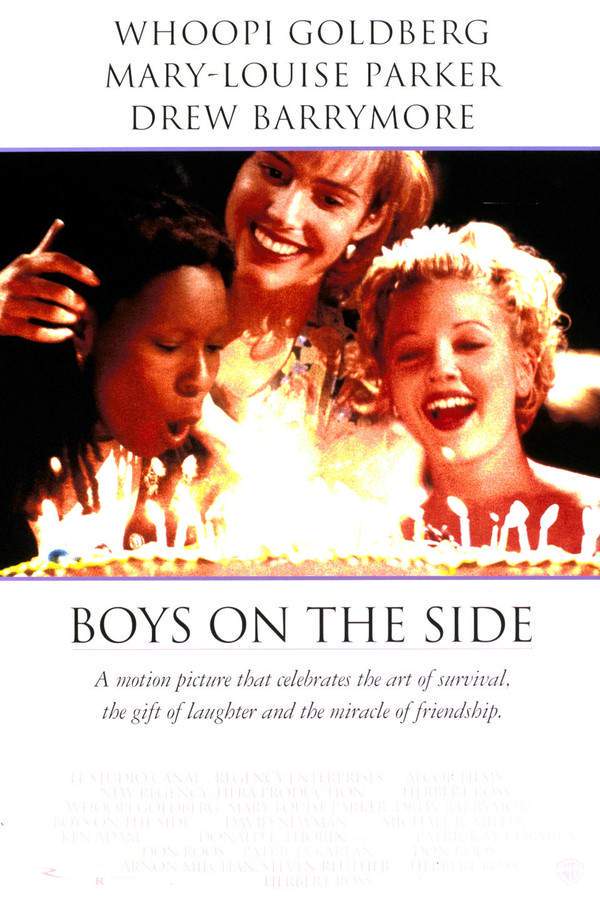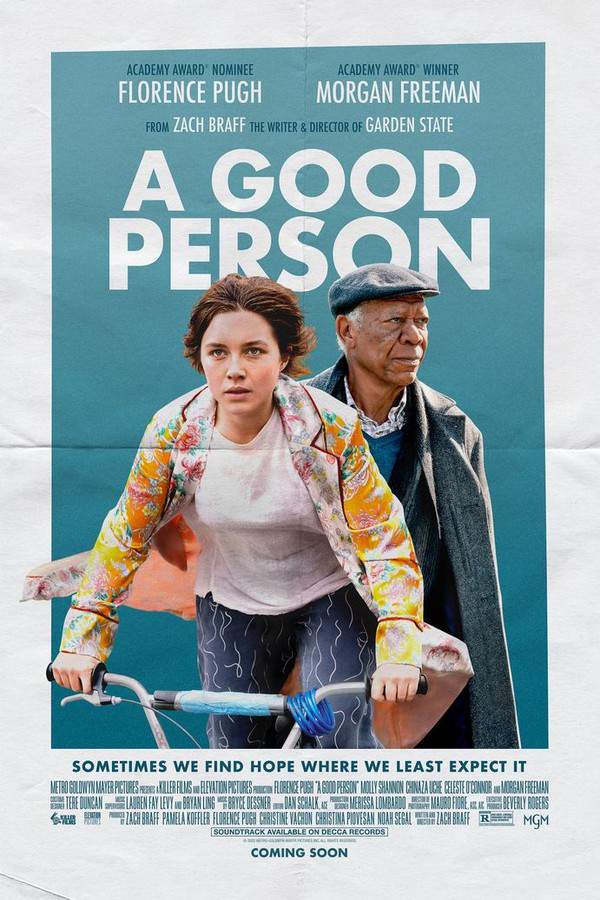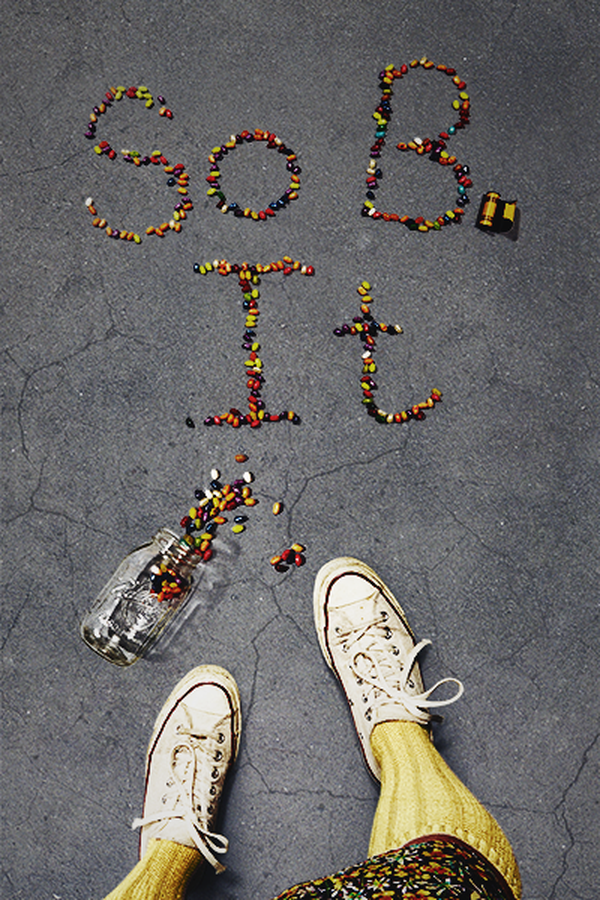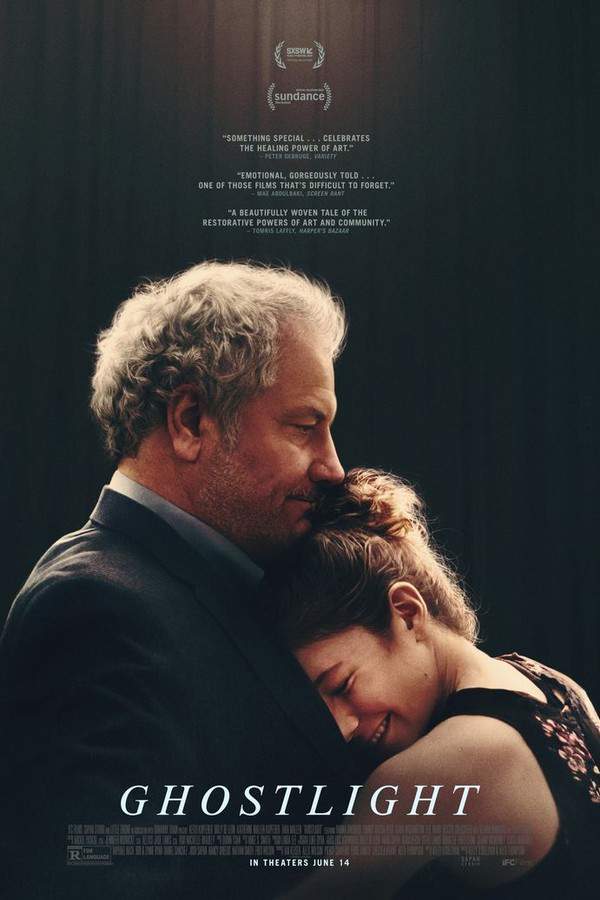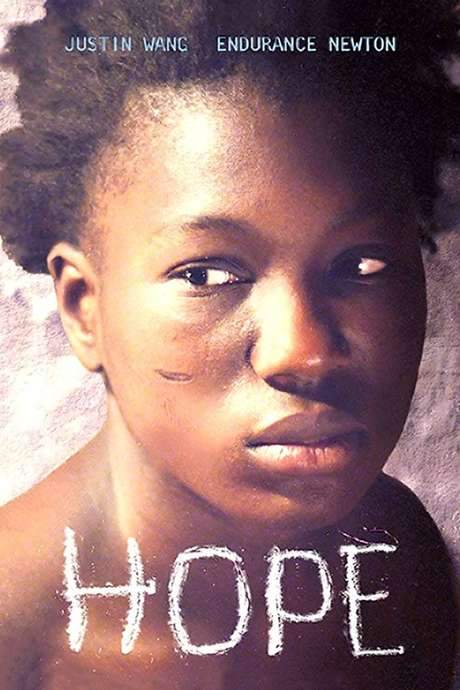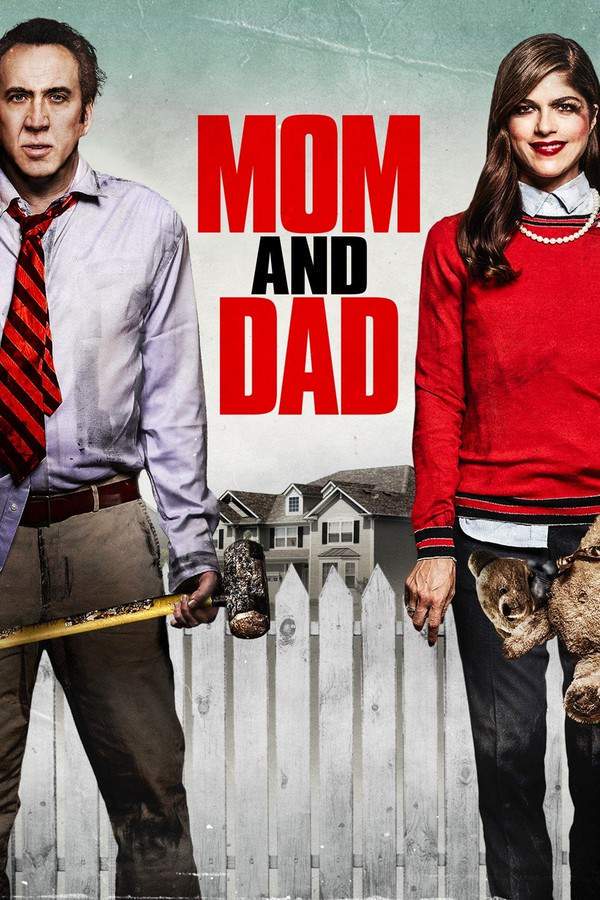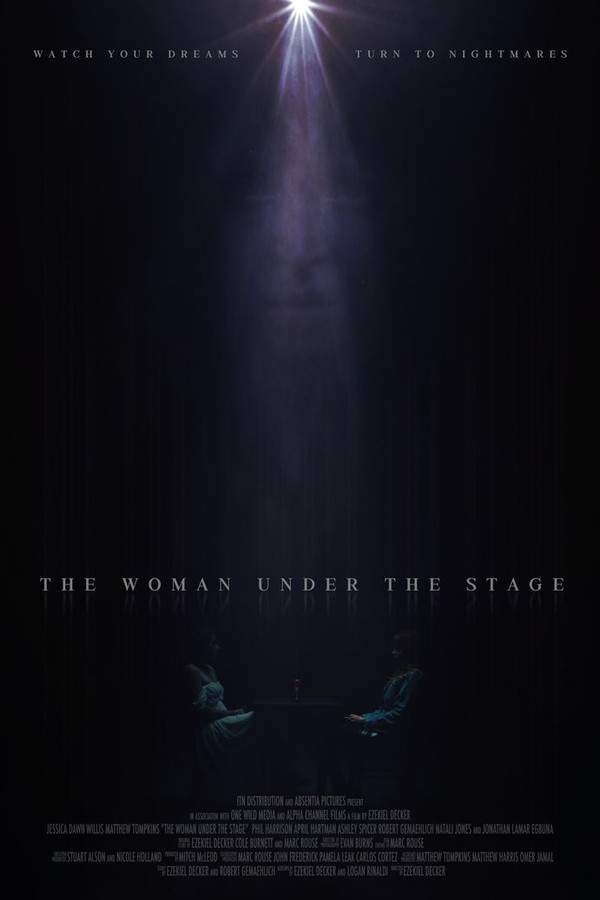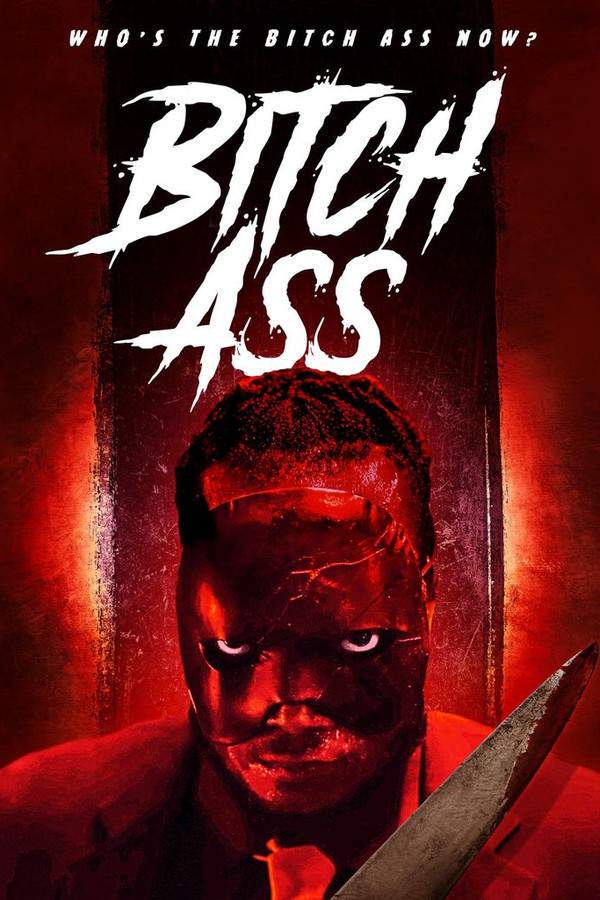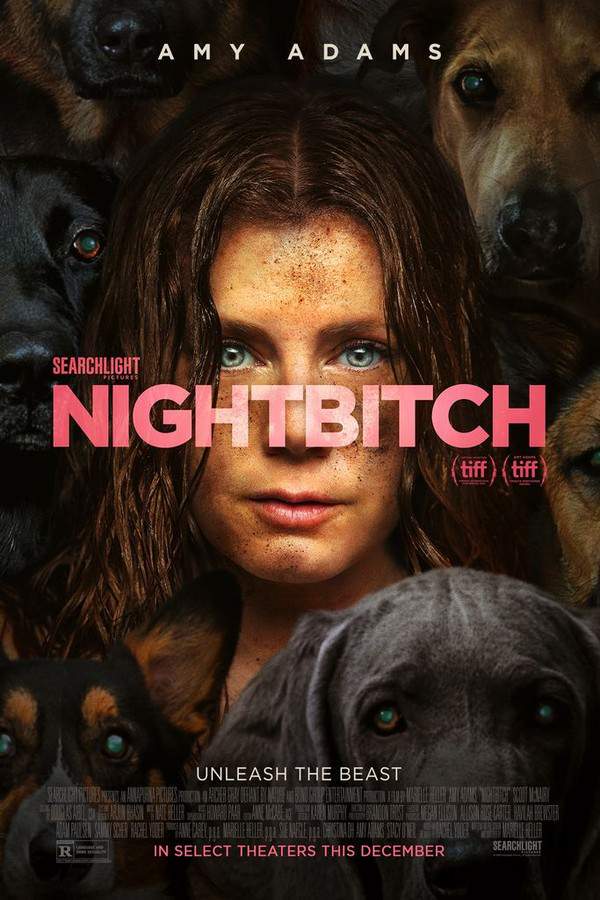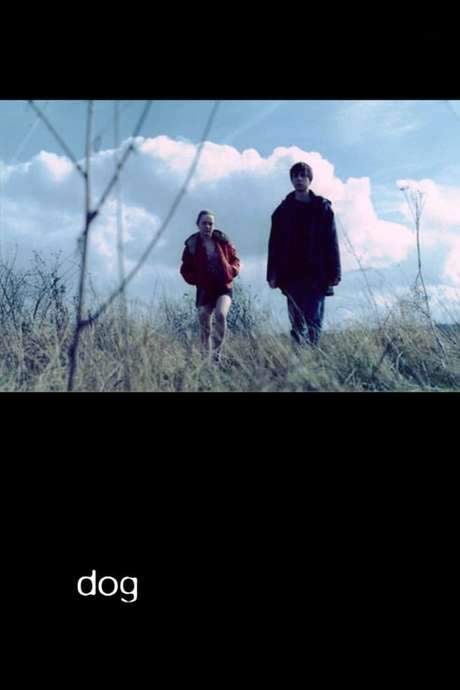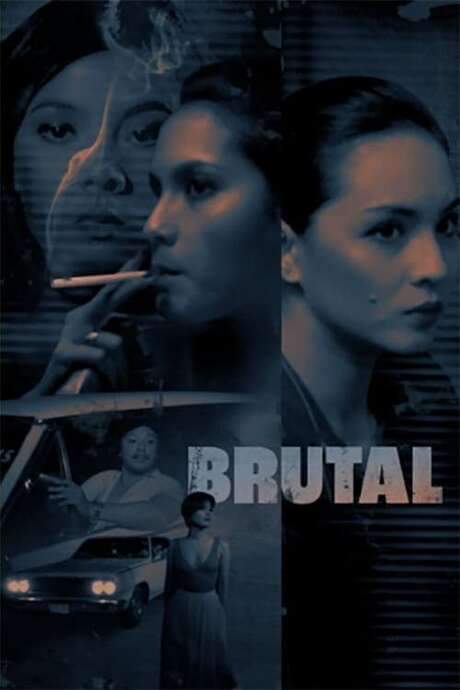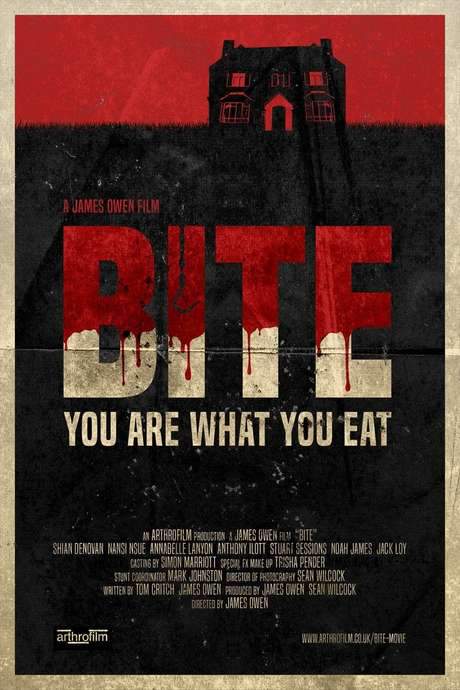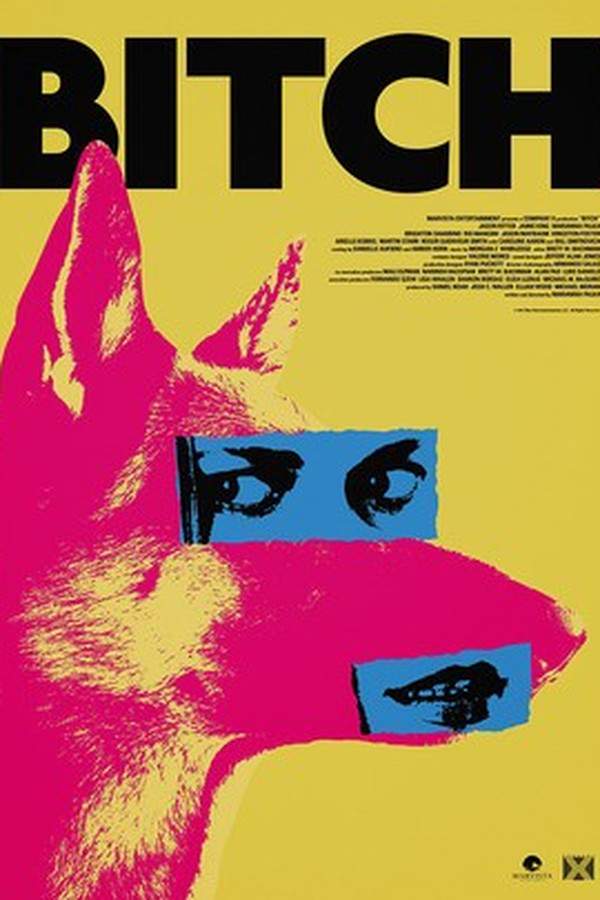
Bitch
As Jill's life becomes increasingly unstable, she struggles to hold everything together. A strained marriage and the demands of raising four children push her to the brink. Adding to the turmoil, a menacing dog lurks near their home, hinting at a disturbing change to come. As Jill’s mental state deteriorates, a primal instinct emerges, threatening to consume her and forcing her family to question their bonds of love and loyalty.
Warning: spoilers below!
Haven’t seen Bitch yet? This summary contains major spoilers. Bookmark the page, watch the movie, and come back for the full breakdown. If you're ready, scroll on and relive the story!
Bitch (2017) – Full Plot Summary & Ending Explained
Read the complete plot breakdown of Bitch (2017), including all key story events, major twists, and the ending explained in detail. Discover what really happened—and what it all means.
Jill Hart, a stay-at-home mom in the L.A. suburbs, is under immense pressure from the daily grind and the long absence of her philandering husband, Bill Hart Jason Ritter. The mounting stress pushes her to a dark edge, and when she attempts suicide by hanging herself with a belt, she narrowly survives, only to see her already fragile world tilt even further. As if the strain weren’t enough, a mysterious dog that skulks through the family garden watches the house with unsettling persistence, amplifying Jill’s sense of being trapped. The ordeal kicks off a rapid mental unraveling that culminates in Jill vanishing, leaving Bill to juggle work pressures and the care of their four children.
The four children—Jed Hart [Jason Maybaum], Max Hart [Rio Mangini], Tiffany Hart [Brighton Sharbino], and Cindy Hart [Kingston Foster]—are forced to confront a frightening reality: their mother has disappeared, and their father seems unable—or unwilling—to fully shoulder the burden. When they stumble upon clues—clothes smeared with feces and a phone left behind—the fear intensifies. And then they discover Jill in the basement, no longer herself but snarling and barking, behaving like a dog. The home shifts from a symbol of stability to a landscape of confusion and danger, as the children realize that something terrifying is happening to their mother, and their father’s attempt to keep up appearances only deepens the rift.
Bill, overwhelmed by the dual pressures of work and responsibility, retreats into his job as a refuge. He resists involving the family doctor, blaming both the mounting stress and the suggestion of psychiatric care, and he hides the severity of Jill’s condition from everyone, including his own sister, Beth [Jaime King]. Jealousy, resentment, and fear melt into a troubling pattern: he starts secretly drinking vodka, and he even flushes his wedding ring down the shower drain as if to shed the responsibilities he cannot bear. The stress takes a toll on his career as well; he is fired, an event that further unsettles the children and deepens their sense of abandonment. Jill remains in the basement, feral and aggressive, a shadow of the woman she once was. Yet even in the darkest moments, a slow door begins to reopen as Bill and Beth start to acknowledge the severity of Jill’s condition and the strain it has placed on their family.
As the days pass, Bill and Beth begin to recalibrate their approach, learning to work together for the sake of the kids. Bill starts small, buying dog toys for Jill in a bid to reach her, and he eventually recognizes that their attempts to engage with her—though well-meaning—are adding stress. He and Beth gradually open up, sharing the load and creating a more honest, functional family environment. The tension peaks when Bill’s affair partner visits his home, a moment that triggers Beth’s fury and leads to a tense confrontation. Jill seizes the opportunity to escape, though she is later found unharmed by the roadside. The family’s resolve hardens as Beth reveals that custody papers are being filed for Jill’s sake, and Bill is forced to confront his past selfishness.
A medical assessment marks a turning point. Bill, realizing the harm his behavior has caused, accepts the need for professional help, and Jill is sedated and moved to a hospital for care. With Jill out of the house, Bill handles the routine chores and takes stock of the family dynamics, even as the plumber [Jaime Moyer] discovers Bill’s missing wedding ring and returns it to him. The couple eventually moves away from the family home, a step that signals a new chapter in their lives. Bill’s growth as a caring parent is recognized by the children, and Beth’s willingness to heal alongside him hints at a more supportive future for everyone involved. The family’s bond begins to repair, and there is a quiet sense of possibility as they navigate the road ahead.
When Jill finally returns home for the first time, she is still unsettled and occasionally behaves like a dog, but she is noticeably calmer. Bill takes a compassionate, hands-on approach: he brings Jill to a local dog park to meet other dogs and even joins in, getting down on all fours to encourage play and connection. The moment is intimate and healing, a tangible sign that their lives are shifting in a healthier direction. Later that night, an attempt to help Jill by offering a shower triggers a painful relapse, and she briefly regains the memory of her identity in a flood of memories. Bill holds her, speaking softly to reassure her as she cries, and the next morning, she finally smiles at him—a small, fragile sign of renewed trust and the possibility of a future together.
Throughout this emotional arc, the film threads a portrait of resilience in the face of crisis, exploring the ways a family negotiates loyalty, guilt, and renewal. The characters of the Hart family—Jason Ritter as Bill, Jaime King as Beth, Caroline Aaron as Nana, Jason Maybaum as Jed, Rio Mangini as Max, Brighton Sharbino as Tiffany, Kingston Foster as Cindy, Jaime Moyer as Plumber Joe, Ren Hanami as Family Lawyer, and Sol Rodriguez as Annabelle—navigate a landscape where fear yields to understanding, where withdrawal slowly gives way to connection, and where even a broken family can discover a hopeful path forward.
Last Updated: October 09, 2025 at 16:14
Explore Movie Threads
Discover curated groups of movies connected by mood, themes, and story style. Browse collections built around emotion, atmosphere, and narrative focus to easily find films that match what you feel like watching right now.
Claustrophobic family dramas about mental breakdown like Bitch
Stories where the home becomes a pressure cooker for a character's crumbling sanity.This collection features movies like Bitch, focusing on stories where a family is trapped by the psychological unraveling of a parent or partner. If you were captivated by the stressful, intimate portrayal of a mental health crisis within a domestic setting, these films explore similar themes of denial, responsibility, and fragile recovery.
Narrative Summary
Narratives in this thread typically follow a linear, character-driven path, beginning with the initial signs of a mental health crisis. The plot steadily builds pressure as the family grapples with denial and the increasing instability of their home life, culminating in a reckoning and a difficult, often bittersweet, path toward healing.
Why These Movies?
Movies are grouped here for their shared focus on the domestic sphere as a setting for high-tension psychological drama. They share a dark tone, heavy emotional weight, and a steady pacing that allows the audience to feel the cumulative stress of the situation, creating a consistently unsettling and harrowing viewing experience.
Movies about fragile recovery and resilience like Bitch
Journeys where recovery is a fragile victory, earned through immense struggle.If you appreciated the bittersweet yet hopeful ending of Bitch, this list highlights similar films about overcoming severe personal trials. These movies like Bitch depict characters grappling with trauma, mental health, or family collapse, culminating in an ending that acknowledges the struggle while offering a hard-earned sense of hope.
Narrative Summary
The narrative pattern involves a protagonist or family enduring a heavy, life-altering event. The story charts their difficult path through denial, struggle, and eventual confrontation with their reality. The conclusion is bittersweet, acknowledging the pain and loss suffered while also finding a glimmer of hope and the strength to move forward, however tentatively.
Why These Movies?
These films are connected by their shared emotional arc from devastation to a qualified form of healing. They possess a heavy emotional weight and deliver a bittersweet ending feel, providing a cathartic experience that is both heart-wrenching and ultimately affirming of the human capacity for resilience.
Unlock the Full Story of Bitch
Don't stop at just watching — explore Bitch in full detail. From the complete plot summary and scene-by-scene timeline to character breakdowns, thematic analysis, and a deep dive into the ending — every page helps you truly understand what Bitch is all about. Plus, discover what's next after the movie.
Bitch Timeline
Track the full timeline of Bitch with every major event arranged chronologically. Perfect for decoding non-linear storytelling, flashbacks, or parallel narratives with a clear scene-by-scene breakdown.

Characters, Settings & Themes in Bitch
Discover the characters, locations, and core themes that shape Bitch. Get insights into symbolic elements, setting significance, and deeper narrative meaning — ideal for thematic analysis and movie breakdowns.

Bitch Spoiler-Free Summary
Get a quick, spoiler-free overview of Bitch that covers the main plot points and key details without revealing any major twists or spoilers. Perfect for those who want to know what to expect before diving in.

More About Bitch
Visit What's After the Movie to explore more about Bitch: box office results, cast and crew info, production details, post-credit scenes, and external links — all in one place for movie fans and researchers.

Similar Movies to Bitch
Discover movies like Bitch that share similar genres, themes, and storytelling elements. Whether you’re drawn to the atmosphere, character arcs, or plot structure, these curated recommendations will help you explore more films you’ll love.
Explore More About Movie Bitch
Bitch (2017) Scene-by-Scene Movie Timeline
Bitch (2017) Movie Characters, Themes & Settings
Bitch (2017) Spoiler-Free Summary & Key Flow
Movies Like Bitch – Similar Titles You’ll Enjoy
Mom and Dad (2018) Story Summary & Characters
The Woman (2011) Full Movie Breakdown
Home Sweet Hell (2015) Film Overview & Timeline
Bitch Ass (2022) Spoiler-Packed Plot Recap
Nightbitch (2024) Spoiler-Packed Plot Recap
Dog (2001) Story Summary & Characters
The Boy Who Cried Bitch (1991) Spoiler-Packed Plot Recap
Brutal (1980) Complete Plot Breakdown
Bizarre (1987) Plot Summary & Ending Explained
Bite (2022) Full Movie Breakdown
The Bitch (1979) Complete Plot Breakdown
The Bitch Is Back (1995) Movie Recap & Themes
The Creature (1977) Plot Summary & Ending Explained
Run! Bitch Run! (2009) Movie Recap & Themes
The Baby (1973) Complete Plot Breakdown

